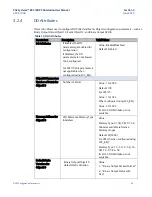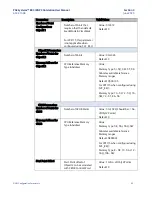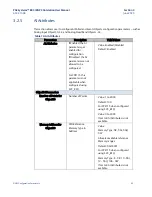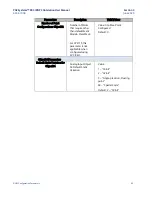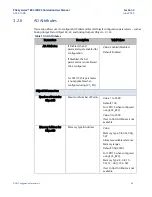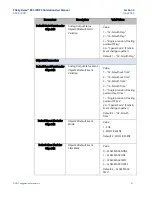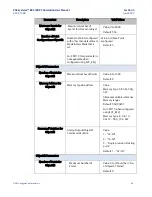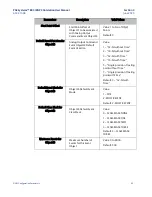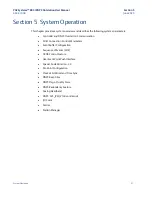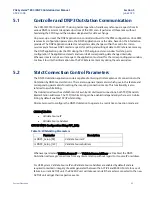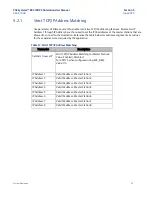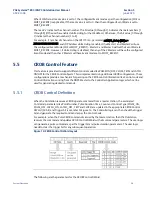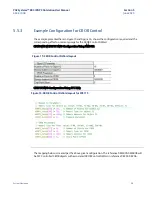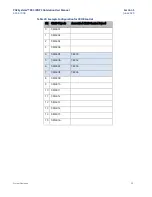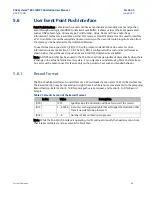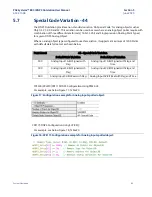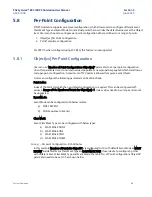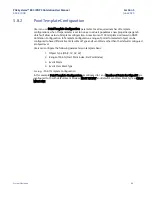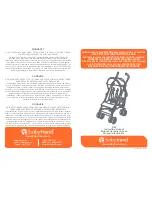
PACSystems™ RX3i DNP3 Outstation User Manual
Section 5
GFK-3103B
June 2020
System Operation
54
5.2.2
Strict Lower-Level Address Matching
Use parameter Validate Source Address to enable restrictive Lower-Level Address (LLA) addressing
features. Parameters Source Address 1 through Source Address 8 are then used to set the LLA
addresses of the master stations that are allowed to connect to the Outstation. Reference the table
below for address assignments. Set values for these parameters as required by the application.
Table 18: Strict Lower-Level Address Matching
Parameter
Description
Validate Source Address
Strict LLA Address Matching for Master Stations:
Value: Enabled / Disabled
For CPE115 when configured using
SVC_REQ
Value:1/0
Source Address 1
Valid LLA address
–
Master Station 1
Source Address 2
Valid LLA address
–
Master Station 2
Source Address 3
Valid LLA address
–
Master Station 3
Source Address 4
Valid LLA address
–
Master Station 4
Source Address 5
Valid LLA address
–
Master Station 5
Source Address 6
Valid LLA address
–
Master Station 6
Source Address 7
Valid LLA address
–
Master Station 7
Source Address 8
Valid LLA address
–
Master Station 8
5.3
Event Buffer Configuration
Event Buffers can be configured for individual event Objects and Buffer length is configurable to a
maximum of 8000 Events. DNP3 Outstation supports 6 Event Objects types (Obj 2, 11, 22, 32, 42, 43),
total maximum events available are 48000. In case of CPE115 maximum supported events are 24000 .
The number of events or size of Event Buffer configured for a given Event object is utilized across all the
configured DNP3 master sessions, even a single DNP3 master session can result in using up all the
event buffer space. For e.g. If the number of configured masters is one, then all the 8000 events per
object will be available for that master, if eight Masters are configured, then any of the masters or all
the masters together can accommodate 8000 events for that given Object.
When there is any change in the data, events are generated at Outstation and stored in the Event Buffer
Queue for all the configured number of master sessions, irrespective of the connection status. If any of
the masters is not connected or if the events are not being polled by any of the masters, then the
events are not removed from Event Buffer Queue, this results in consuming all the configured Event
Buffer space without leaving room for the newly generated events to be stored in the buffer. When new
events are generated but not able to store in the event buffer queue will result in setting up the IIN2.3
‘Event buffer Overflow’ bit.
To avoid this situation, it is recommended to only configure the required
number of masters and perform regular data polls such as General Interrogation or RBE.

